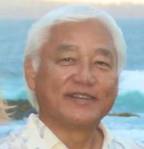Naniloa Seeks Bankruptcy Court Approval for Plan
Ken Fujiyama, owner of the Naniloa Volcanoes Resort, has come up with a new plan he claims would get the Hilo hotel out of bankruptcy.
The plan submitted on March 20 to the US Bankruptcy Court in Honolulu calls for the Naniloa to repay its creditors – including a bank to which it owes nearly $10 million – over a five-year period.
The plan calls for Hawaii Outdoor Tours Inc., the Fujiyama company which owns and operates the Naniloa, to make payments using revenues from the operation of the Banyan Drive hotel and golf course, or from the possible sale or refinancing of the Naniloa property.
It projected that revenue in 2013 would range between $355,000 to $553,000 per month, with the latter figure being achieved in April when the Merrie Monarch Festival was held.
Fujiyama’s plan calls for interest-only payments to First-Citizens Bank & Trust Co. of $41,000 per month for the first 30 months and then increased payments of $53,000 per month for the next 30 months, with a balloon payment of $9.5 million at the end of the five-year period.
Under the plan, the Naniloa would also make monthly payments to the state for the $521,000 it owes in excise and room taxes, and to the county for the $451,000 it owes for property taxes.
The plan said the Naniloa would be willing to pay those amounts in full if necessary to avoid defaulting on the state lease.
Meanwhile, bankruptcy court Judge Lloyd King last month rejected a request from First-Citizens to have a trustee appointed to take over management of the Naniloa. King’s March 25 ruling was made “without prejudice,” which means it can be reconsidered at a later time.
The state of Hawaii, which owns the property which the Naniloa leases, was in support of the request for a trustee from First-Citizens.
According to a motion filed by Attorney General David Louie, the state is concerned that Fujiyama has “no interest” in clearing up the resort’s financial problems.
It also said that it was concerned that Fujiyama will be unable to make the required $500,000 annual lease payment to the state, payments on which he has defaulted in the past.
To protect its financial investment, First-Citizens paid more than $520,000 to the state last fall to cover overdue lease payments and interest.
The bank in October attempted to foreclose on the Naniloa, which had been used for collateral when Fujiyama borrowed $10 million after submitting the winning bid on the hotel’s lease in 2006.
The Naniloa’s filing for bankruptcy in November put the foreclosure action on hold.
The state’s motion also said that the “entanglement” between Fujiyama’s personal interests and those of the hotel jeopardizes the interests of its creditors.
That is also the concern of First-Citizens, according to documents filed with the court by its attorney, Ted Pettit from the Honolulu firm of Case Lombardi and Pettit.
Pettit’s filing said that according to a study by a forensic accountant hired by First-Citizens, in the year preceding its November filing for bankruptcy Fujiyama made unexplained payments totaling at least $775,000 to himself, his immediate family and companies he controlled.
The document said that Fujiyama claims he cannot afford to pay for a trustee, but, according to Pettit, the hotel and its creditors cannot afford not to.
According to the study, the Naniloa has incurred losses totaling more than $10.8 million since 2008, the document said.
The filing said Fujiyama has failed to make timely and accurate daily reports of cash transactions as required by the bankruptcy court. It was also critical of Fujiyama’s accounting methods as shown in its income and expense reports.
“Debtor would like the Court and estate creditors to believe that it will now be able to magically turn a profit for the Naniloa Hotel and successfully reorganize despite its failure to maintain, let alone improve, the current condition of the hotel,” the document said.
Sponsored Content
Comments






_1770333123096.webp)


